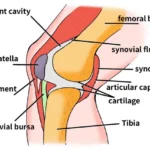Some athletes consume high doses of nutritional supplements in the hope of gaining a competitive edge. Among the most popular of these is creatine.
Athletes of all ages, including children and adolescents, often turn to creatine supplements, believing they can enhance strength and athletic performance. However, current research has not conclusively proven that creatine supplements improve performance in sports. Furthermore, the long-term health effects of creatine, particularly in growing children and adolescents, remain unclear. Due to these unknown risks, it is advised that children and adolescents avoid taking creatine supplements.
What Is Creatine?
Creatine is a naturally occurring energy source for muscle contraction. The body produces it in the liver, kidneys, and pancreas, and it is also obtained through foods like meat and fish. Vegetarians may naturally have lower levels of creatine in their bodies. Most creatine in the body is stored in skeletal muscles, where it supports physical activity, while smaller amounts are utilized in the heart, brain, and other tissues.
Creatine supplements may increase creatine levels in muscles, potentially allowing for faster or greater energy generation. This could be beneficial for activities requiring quick, intense bursts of energy, such as sprinting or weightlifting. Vegetarians and individuals with naturally low creatine levels may notice greater effects from supplementation. However, muscles may reach a “saturation point” beyond which they cannot store additional creatine.
Easy Access and Widespread Use
Creatine supplements are widely available under various brand names and products. They can be purchased over-the-counter in vitamin shops, drugstores, grocery stores, and online.
The popularity of creatine supplements continues to grow. Neither professional sports associations nor regulatory bodies like the International Olympic Committee (IOC) or the National Collegiate Athletic Association (NCAA) prohibit their use.
Most creatine users include:
- Males,
- Athletes in power sports like football, wrestling, hockey, and bodybuilding,
- Athletes across all performance levels, from professionals to middle-school participants.
A study by the American Academy of Pediatrics found that creatine use begins as early as middle school. Among students aged 10 to 18, 5.6% reported using creatine, with usage rates peaking at 44% among high school senior athletes.
Supplements Are Not Always Safe
Despite being a “natural” product, creatine supplements are not always safe. Since the U.S. Food and Drug Administration (FDA) does not regulate nutritional supplements, creatine products may vary significantly in quality, dosage, and purity, offering no guarantee of safety.
Research from the Mayo Clinic reveals that many young athletes rely on advice from friends rather than medical professionals when using creatine. Improper dosing is common, with users often taking more than recommended.
Potential Side Effects
Creatine increases water retention in muscles, often leading to weight gain. Long-term use may result in side effects such as:
- Muscle cramps,
- Dehydration,
- Diarrhea,
- Nausea,
- Seizures.
Using creatine during dehydration or extreme weight loss efforts, like those seen in wrestling competitions, can be dangerous.
Unknown Health Risks
The long-term effects of creatine supplements on vital organs, including the heart, brain, liver, kidneys, and reproductive system, remain uncertain. The interactions between creatine and over-the-counter medications, prescription drugs, vitamins, and energy drinks are also not fully understood.
Although researchers are exploring whether creatine could benefit conditions like heart disease, muscular atrophy, and stroke, there is insufficient evidence to confirm its safety or effectiveness. Children under 18, pregnant or nursing women, and individuals with kidney issues should never take creatine.
For everyone, consulting a doctor before using creatine supplements is essential.





